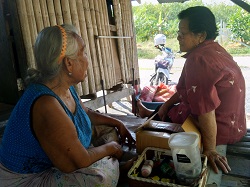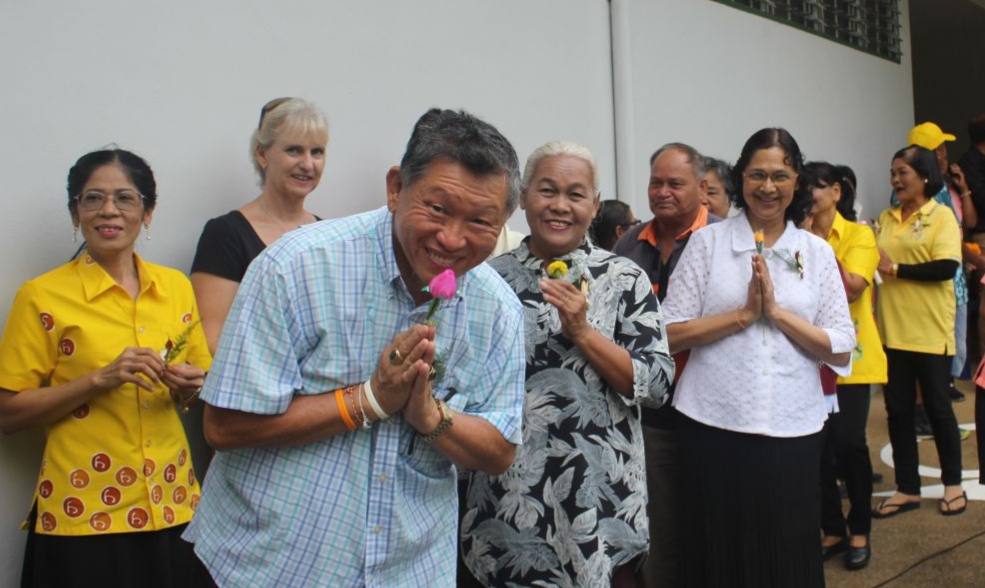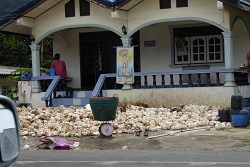
Whenever we walk past, her expression is always melancholy as she looks out on the world. She and many other children in similar situations are often left under the “care” of Youtube or Tik Tok for long periods of time as the grandparents are often tired out easily or have things to get done.
- Details
- Written by Steve McCallum
- Category: Life in Thailand
- Hits: 1541
One of the things Mailaa Team try to do to help our community is to shop locally. Where possible we buy products from local sellers and not chain stores. This means that the funds given by our supporters not only provide for our needs but also contribute towards the needs of people in the Mai La community. This is even more important during the current economic downturn. People in our community were worried about the economy even before Covid-19 effected it. The economy in South Thailand was already depressed due to the low fruit and rubber prices and low rain fall. Covid-19 has only made things worst.
- Details
- Written by Lee-Anne
- Category: Life in Thailand
- Hits: 1018

Aunty T is an elderly lady with bad knees, who lives alone in a very simple house. I first met her when I was out prayer walking with my teammate. She was married but had no children and her husband died several years ago. After first meeting her, she seemed to be interested in hearing something of the gospel. I asked one of the church members to come and visit her with me as Aunty T often spoke in Southern Thai* so I was unable to understand everything she was saying.
- Details
- Written by Lee-Anne
- Category: Life in Thailand
- Hits: 974

In Thailand the word we use to say hello is Sawasdee, however with this word comes an action of the wai. The hands are placed palm against palm in a prayer like position and then raised toward the face while the head does a slight bow. The higher the hands are raised and the lower the bow the more honour is given to the recipient. It has its origins in India apparently with the original meaning I see the holy within you.
However, the meaning of the “wai” in Thailand has no religious meaning, it is an action used to express honour to the other person in greeting, as well as to express gratitude or to apologise.
- Details
- Written by Bruce Bartleet
- Category: Life in Thailand
- Hits: 1097



